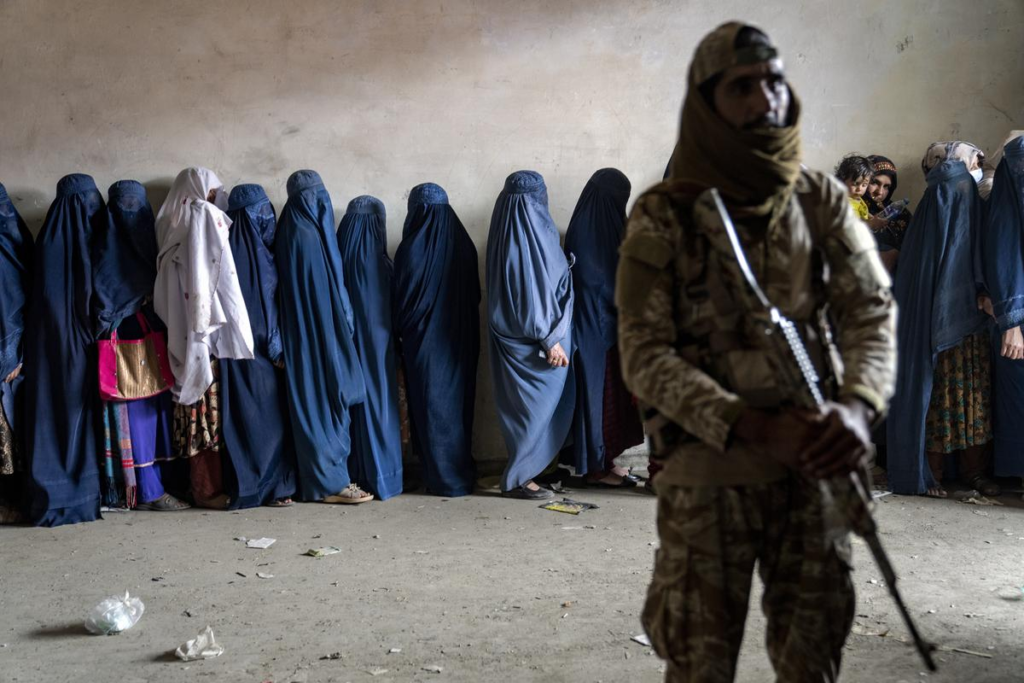The Taliban has once again tightened its grip on Afghanistan’s media landscape by suspending the country’s only women-run radio station, Begum FM.
The decision, announced on February 5, 2025, was justified by the Taliban’s Information and Culture Ministry as a response to the station’s alleged violations, including the unauthorized provision of programming content to an overseas TV channel.
This marks another setback for press freedom in Afghanistan, particularly for women journalists who have faced increasing restrictions since the Taliban’s return to power in 2021.
A Blow to Women’s Voices in Afghanistan
Begum FM, established on March 8, 2021, in celebration of International Women’s Day, had been a rare platform dedicated to women’s voices in Afghanistan. Founded by Afghan entrepreneur and journalist Hamida Aman, the station was operated by the Begum Organization for Women (BOW).
It played a crucial role in addressing women’s issues, broadcasting educational programs, and discussing topics such as health, spirituality, and psychology. Over time, it became a vital resource for Afghan women, particularly in rural areas where access to information is severely restricted.
The ministry’s decision to suspend the station is not an isolated incident. In recent years, the Taliban has systematically dismantled independent media and silenced voices critical of its policies. The crackdown on Begum FM is particularly alarming, as it targets a platform that provided Afghan women with a rare opportunity to engage with social and political issues.
Read : Taliban Orders All NGOs in Afghanistan to Stop Employing Women or Face Closure
While the ministry has stated that the station’s future will be reviewed after an assessment of its documents, many fear this move is part of a broader campaign to erase women’s presence from public life.
The Broader Crackdown on Free Press
Since taking control of Afghanistan in August 2021, the Taliban has imposed severe restrictions on the media. Journalists, particularly women, have been subjected to intimidation, job losses, and even arrests. The closure of Begum FM follows a pattern of repression that has seen several media outlets shuttered and reporters detained under vague accusations.
In December 2024, the Taliban shut down Arezo TV, a prominent Afghan news station, and reportedly detained seven of its employees. The station had been known for covering issues related to human rights, governance, and social justice.
The move was widely condemned by international human rights organizations, but the Taliban has remained defiant, continuing its efforts to control Afghanistan’s information space.
Women in the media industry have been disproportionately affected by these measures. Many female journalists have been forced to leave their jobs, while others have gone into hiding due to threats and harassment.

With each new restriction, the Taliban moves closer to erasing women’s voices from the public domain altogether. The closure of Begum FM represents not just an attack on journalism but also a deliberate effort to suppress Afghan women’s right to express themselves and participate in society.
Despite the Taliban’s promises of a more moderate rule compared to their previous regime in the 1990s, their actions tell a different story. Women have been systematically excluded from most professions, educational institutions, and public spaces.
The suspension of Begum FM fits into this broader strategy of marginalization, reinforcing the Taliban’s vision of a society where women are seen but not heard.
International Response and Calls for Reversal
The suspension of Begum FM has sparked outrage among human rights groups and press freedom advocates worldwide. Organizations such as Reporters Without Borders (RSF) have condemned the move, calling on the Taliban to immediately reverse the ban.
The international community has repeatedly criticized the Taliban’s media policies, urging them to respect freedom of expression and allow independent journalism to thrive.

However, the Taliban has shown little regard for international pressure. Despite diplomatic efforts and humanitarian aid conditions tied to human rights improvements, Afghanistan’s rulers have continued their campaign against the free press.
The country has become one of the most dangerous places in the world for journalists, with independent reporting being increasingly stifled.
Begum FM’s closure also raises concerns about the fate of its recently launched sister broadcaster, Begum TV, which was established in Paris in March 2024 with funding from the Malala Fund. This initiative was meant to provide a global platform for Afghan women’s voices, but with the Taliban’s ongoing crackdown, its ability to operate effectively remains uncertain.
The silencing of Begum FM is more than just the closure of a radio station; it is a symbol of the systematic oppression of Afghan women and the erosion of press freedom in the country.
As Afghanistan continues to slip further into authoritarian rule, the international community must take a stronger stance to protect the rights of journalists and ensure that Afghan women are not completely erased from public discourse.

